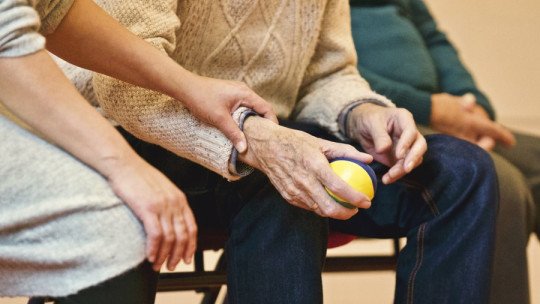
Human relationships are necessary for the maintenance of adequate mental health, and constitute one of the protective factors for psychological problems, just as health habits, socioeconomic status, or genetic predisposition are.
Human relationships, when they add to us, contribute, help, can make us feel very good. Human beings are social beings and as such, it benefits us to interact. The fact of doing so helps us feel like we belong to a group, loved and accepted.
However, This does not mean that relationships always benefit us nor are they mandatory.
Why do we stay with people who harm us?
Being in a relationship, of any type (friendship, family, couple) due exclusively to a need to not be alone, can negatively influence your mental health and, therefore, become quite the opposite, a predisposing factor for suffer psychological problems. In fact, relational problems are one of the main reasons why people go to therapy.
The problems that occur in the context of a relationship with a partner or ex-partner, relatives of origin or in-laws, between colleagues or friends or former friends, serve as a predisposing and sometimes trigger for different symptoms that generate difficulties in daily life. of the person.
There are some reasons why we can find ourselves in the situation of clinging to people who deep down we believe are not benefiting us, or are even causing us harm
Sometimes what happens is that we hold on for the illusion of feeling like we did at the beginning of the relationship again. Therefore we live rather in the memory we have of what was and how it was, than in what really is today. So, we have thoughts in our heads such as: “I want to go back to what we were before”, “this didn’t happen to us before”, “we will go back to being what we were”, etc.
So it is worth analyzing your relationship from time to time, to observe how you currently feel about it, what things you are missing or in excess of, How could you “renegotiate” the conditions of your relationship if you see it necessary?, etc. Doing this constantly will require a lot of energy, but doing this analysis from time to time can help you realize the real reasons why you are still in that relationship and know what changes you have to make, in case something has to be modified.
A dynamic of emotional dependence
On other occasions, especially in the context of a relationship, we attribute to the person the ability to heal us. So, directly or indirectly, we hold them responsible for our emotions, with what this entails: “I myself am not responsible for being better, and normally the other person finds themselves with a responsibility that they either do not know they have, or they have but do not have.” “He knows how to manage.” This It puts us in a situation of vulnerability that causes a negative spiral in the relationship
Each person is responsible for what they think, feel, and do. Your partner can help you feel better, but the analysis of what is happening, the solution initiatives, and the management of your own emotions will come from you. In some of these relationships, we also expect the person who is harming us to repair us, so we turn to a source of discomfort to try to find well-being, with the frustration and resignation that this entails.
A role of submission to the other
Finally, we may cling to certain relationships that no longer contribute to us because we consider that we do not have the right to give an opinion, criticize, decide, or set limits on the relationship. In the most serious cases, the person may be being denigrated and continue in a very harmful relationship for him/her, with the consequent damage to his/her self-esteem. People with low self-esteem tend to be more emotionally dependent in their relationships, to exercise their assertive rights less well, and are ultimately more vulnerable to clinging to relationships that are negative for them.
In this sense, if you detect that your self-esteem is low, it is best that you turn to a mental health specialist who can adequately evaluate your problems and needs and tell you the tools to use to improve.
On certain occasions it can help you to ask your surroundings, rely on your social network, who can give you a different and sometimes more objective point of view, regarding the rights you have in that relationship. Your environment can even help you find the best words to express your needs, your criticisms, your opinions, etc. within that relationship you are clinging to. Also tell you how to set appropriate limits. It is important to choose carefully which people you trust when asking for advice, so that you can freely express what you want without feeling judged.
Concluding…
Relationships are a source of satisfaction and well-being. They generate love, satisfaction, pleasure, fun, connection, etc. This is why they become a very important part of our lives. However, relationships should not continue at any cost, especially when we detect that they are being a source of excessive stress and causing us a lot of unnecessary pain. They may become a source of dissatisfaction, discomfort, sadness, guilt or frustration. In relationships there are conflicts, and learning to deal with them is necessary, if breaking the relationship as soon as there is a problem. But this should not condition us when it comes to setting the necessary limits and letting go of those relationships that are harming us.
How to identify harmful relationships, or get out of them, can be a complicated and expensive process, as well as painful. We encourage you to consult a mental health professional, who can guide you in this identification and communication process, as well as help you in the process of overcoming grief for the loss of a relationship in the event that it ends. Asking for help is very healthy and sometimes essential to address certain psychological problems.








